From the point of view of the long-term impacts of the pandemic, the key question is whether the pandemic will change the linear mindset of the industrial age that cherishes efficiency and optimisation. Or, will politics evolve so as to take the systemic origin and impacts of shocks into consideration? Could the coronavirus crisis increase understanding and discussion of adding proactive preparedness for change to different levels of society?
Many people are now confused, some even distressed or scared. It feels as if the world has turned upside down. Old mindsets and operating models no longer work, the world has become unpredictable and people’s own futures may be unknown. The financial crisis, terrorism, civil wars, global migration, growth in inequality and mental health issues, governments stumbling from one crisis to another, populists and despots rising to power, extreme natural phenomena – and now a pandemic that has affected all of humankind. What on earth is going on in the world? How could the events be better understood and what could be learned from this coronavirus crisis for the future?
Time of surprises and uncertainties
Futures researchers have described this world of surprises, discontinuities and conflicts as post-normal times. Sitra’s Megatrends 2020 report calls post-normality a metatrend, a driver of change that emerges from several developments that combine diverse drivers of change and thereby impacts the trends and megatrends Megatrend A general direction of development consisting of various phenomena and entailing widespread change, such as the ecological sustainability crisis. Megatrends are often considered to occur at the global level and the development is often considered to continue in the same direction. Open term page Megatrend of society.
The coronavirus pandemic is a prime example of a phenomenon of the post-normal times. Things that many considered “normal” before the coronavirus changed or their foundations weakened all of a sudden. The coronavirus crisis can be a wake-up call and point of transformation for many, with no return to the old; however, the “new normal” is still unbuilt. This is a consequence of several simultaneous and interdependent factors. The coronavirus pandemic has made the interdependent world, in which the speed and extent of crises have enormous, even chaotic, impacts, more apparent. Global X Network’s systems chart and scenarios illustrate well the interdependencies of the coronavirus pandemic and their potential impacts.
The possibility of pandemics has been acknowledged in foresights, global risk assessments and epidemiologists’ analyses. Then why was the coronavirus pandemic still able to surprise us? In a New York Times column, Thomas L. Friedman explains this by describing the coronavirus as a black elephant. The term refers to a cross between the “black swan” and the “elephant in the room”. A disaster that was known, yet no one wanted to see it. He describes how several decisions and value choices made by people have led to this situation. Understanding these background factors and the big picture is important because other crises can be lurking around the corner, too.
Next, we will go deeper into these background factors and the possible options of the uncertain and unexpected world.
A complex and interdependent world
System researchers have talked about a “metacrisis” or “perfect storm” in which several simultaneous crises are strongly intertwined. According to these researchers, we are now at a historic transformation point in which old mindsets and methods of organisation are no longer adequate to manage the increased complexity and uncertainty of society. A “complexity gap” has emerged between the increasingly complex world and old mindsets and operating models. Complexity specifically refers to how several factors and actors are simultaneously interdependent and intertwined (Casti 2012).
The complexity and uncertainty of societies has been increased by many parallel trends: the globalisation of the economy, the structural changes in society, the speed of change accelerated by new communication technology, the growth of information available to decision-makers and the global population growth and increasing mobility of people. Economic globalisation and growth in the international markets have facilitated an unforeseen degree of specialisation, a distribution of work and the interdependence of production processes. For example, the coronavirus crisis has unexpectedly highlighted the major financial importance of subcontracting chains. The prevailing situation has given rise to global discussion about the risks of extreme financial distribution of work and the efficiency mindset when unexpected shocks occur. In fact, grass-roots-level initiatives to shorten food chains have also been seen as elements of this coronavirus time and a sort of a countermeasure.
The globalisation of business and the IT revolution have driven the traditionally stable social systems and institutions of welfare states into turmoil, which has created a new kind of uncertainty in society. New information technology has also accelerated all kinds of production and change processes, which has increased the “clock rate” and information flood of society. Global population growth and increased geographical mobility of people have increased interaction among humankind. Who could have guessed before the coronavirus pandemic how connected the Chinese city of Wuhan is to the rest of the world?
The growth in the complexity gap has driven old operating models into a crisis.
The growth in the complexity gap has, since the turn of the millennium, driven old operating models into a crisis at all levels of society. People’s life control problems have increased, hierarchic organisations are in trouble, a siloed and bureaucratic public administration cannot cope with the wicked problems of society, democracy is in crisis and international organisations have become mired in global problems. The global pandemic crisis is intertwined with the above-mentioned broad developments in many ways, making them stronger or weaker or by leading to new kinds of tensions.
The current transformation period is not, however, unique. Similar transformations have taken place in the history of humankind before. The development of societies has progressed towards a broader circle of life for millennia, allowing increasing division of work, exchange and productivity – while increasing the interdependence and complex interactive relationships of societies.
Human history has included long phases of stable development when people’s views of the world, values, norms and organisational methods have not needed to change much. Development phases that were mainly based on hunting and foraging or agriculture are good examples of this. At some point, the growing circle of life, distribution of work and complexity could no longer be managed with the old mindsets, means of organisation and institutions, and they ended up in crisis. The complexity gap has grown too big. The American historian Joseph Tainter explains the collapse of the Roman Empire and Mayan culture this way in his book The Collapse of Complex Societies. However, the current change does not need to lead to such a calamitous conclusion.
An emphasis on the need for resilience
In an interdependent, highly networked world, the impacts of shocks such as the pandemic are dramatic. They spread fast and hit the weak spots of systems. Therefore, they afflict the sustainability of both individuals and entire societies. In a similar way to what has happened now during the coronavirus crisis, the competitive advantages of more stable times, such as the optimisation and increased efficiency of production processes, or migrant labour, for example, can actually turn out to be weaknesses.
The pandemic crisis has made resilience a topic of discussion. There are several definitions of resilience Resilience The ability of people and communities to function in changing circumstances, face up to disturbances and crises, and recover from them. For example, the capability of society to recover from war and the ability of nature to return the balance of ecosystems. Open term page Resilience , but it generally refers to the ability of an individual, community or society to maintain its ability to operate in changing circumstances and its readiness to face disruptions and crises and recover from them. Finnish scholars have suggested “mukautumisvalmius” (“readiness to adapt”) as the Finnish translation for resilience.
According to resilience researchers, several states and international organisations have made resilience an integral part of their safety and security strategies. Here, the talk is usually about overall resilience that is comprised of individuals, communities, governments and institutions – all intertwined with each other. Resilience is seen as an answer to complex crises whose impacts often transcend national borders that political communities face in the current world order. Resilience is not only about acting amid a crisis; it can be viewed as a process that includes tolerance of crises and recovery from crises, and also the proactive adaptation to changes in the operating environment and learning processes that support them.
Many have reminded us that “restoration” and return to the old are no longer possible, or even desirable, after the coronavirus, because global sustainability issues require a comprehensive transformation of societies. Resilience researchers Tapio Juntunen and Ari-Elmeri Hyvönen state in their analysis that the political measures taken during the coronavirus crisis have strongly focused on the shock resistance of society and the public economy, and discussion about society’s features that contribute to adapting and adaptive learning has been scarce so far.
How to strengthen resilience
How could we improve individuals’, organisations’ and society’s readiness for change that foresees the future and their ability to adapt and recover in the rapidly changing operating environment and during crises? In order to improve resilience, it is necessary to consider how the complexity gap described above could be narrowed. It can be analysed in more detail with Ross Ashby’s “law of requisite variety”. According to this, a decision-maker or organisation can keep things under control for as long as the number of good options available to them equals the number of unexpected challenges and problems faced. If there are fewer options, at some point they will face a problem that they can no longer cope with, and the system ends up in crisis. This is nowadays regrettably common for diverse operators in an increasingly complex world. The system and situation are no longer under control.
The strengthening of resilience can happen by employing two main strategies. The first simplifies the system, whether it is a person’s day-to-day life, a company’s production process or the spread of the coronavirus pandemic. This makes it easier to manage complexity and adapt to the resources available in the challenging situation. For example, remote work brought about by the coronavirus and workers being forced to stay at home may have reduced the stress and chaos in many busy individuals’ lives. Onshoring production, on the other hand, can make the production processes of an international company more manageable. Closing down borders, travel restrictions, the shutting of restaurants and active testing, tracking and quarantines made the Finnish government’s job of managing the coronavirus simpler. Decision-making was guided by the prioritisation of health and human lives. As is typical of wicked problems, the restriction measures taken to control the coronavirus caused new problems elsewhere, such as in the economy and social life.
The second strategy for strengthening resilience is to increase individuals’ or organisations’ capacities and options so that they can better react to the challenges of a more complex world. This can mean, for example, the decentralisation of decision-making in organisations, the development of services that make life control easier or reducing the unnecessary regulation of business. Also, keeping reserve stocks and securing several parallel suppliers are examples of ways of increasing alternatives and resilience. For example, the policy recommendation of the WISE research project to accept partly overlapping functions when it comes to critical functions is based on this strategy. From the point of view of future resilience, the key question is what self-sufficiency and security of supply are in an interdependent world.
Two kinds of mistakes can be made when trying to strengthen resilience. First of all, excessive simplification is an error, because overtly simple explanations and models do not give a realistic view of the problem and are therefore misleading and potentially make the problems culminate or emerge elsewhere. Sharp simplification is, however, a tactic that many populist politicians and despots consciously use. There is a lot of demand for simple explanations and solutions at the moment, with the rapid societal change confusing and worrying people. Causing confusion is also a conscious use of power, as was stated in the Megatrends 2020 report. Simplifying practical operating systems, on the other hand, can demand compromising the distribution of work, which can afflict their innovativeness and productivity. This can happen when international companies, for example, onshore their functions.
Another mistake when trying to improve resilience is associated with the excessive development of alternatives and buffers. This can reduce the efficiency of operations and consume resources from other necessary functions and future-oriented investments. Therefore, it is necessary to consider how different investments and reforms can also simultaneously reinforce the future ability to function. Modern societies have a lot of room for improvement in this respect, as decades of increasing the efficiency of the operating models has decreased their diversity and alternative capacities.
Following the coronavirus crisis, the future seems more uncertain and tense, but also more open at the same time. In fact, futurologists’ talks emphasise concerns about not wasting the crisis from the point of view of creating a better future. In other words, it is a question of exploiting the opportunities for reform, learning and development afforded by crisis.
The importance of continuous learning
Strengthening resilience through reform does not only mean structural changes, but also new models of thinking and continuous learning. Achieving large top-down structural reforms has been difficult in recent years (such as changes in social welfare and healthcare). Strengthening sustainable well-being and society’s resilience requires structural and legislative reforms, for example, but in promoting them it is also important to increasingly move in the direction of co-ordinated experimentation and shared learning processes. New better operating models and structures should be pursued with the help of continuous hands-on experimentation and joint development. Perfect or final solutions do not exist with the world around us changing rapidly.
In order to be able to better address the wicked problems of society and unexpected challenges going forward, individuals, decision-makers and organisations alike will need more options and alternative capacities. In addition to the corporate world, the need for increasing the options and capacities has been evident in the public sector in the form of open innovation and joint development processes, increasing network co-operation and increased experimental activity. These are practical ways of increasing the diversity of the knowledge and expertise base and the flexibility of decision-making, which improves organisations’ capacity for adaptation and renewal.
Practical experimentation, development and learning processes also support the reform of mindsets. They help to build an in-depth understanding of the root causes and interactive relationships of problems. Ideally, such processes succeed in combining different types of information and expertise – practical experience and operating environment-related information, research-based information and expertise of the public administration.
It is possible to identify and crystallise new lessons learned, principles and mindsets from practical experimentation and development activity, making it possible to understand and decrease the complexity of things in similar situations in future. Right now, the key is to think about what we can learn from the experiences of the coronavirus crisis with a view to future crises. Juntunen and Hyvönen remind us that the lessons learned from the coronavirus crisis can help to implement reforms that will strengthen society’s long-term crisis resilience.
The coronavirus crisis has shown how a global crisis also requires individuals to be able to adapt to changing circumstances and to tolerate and come to terms with increased uncertainty. The multidisciplinary science panel has paid attention to it, particularly with regard to children and young people. From the point of view of individuals, it is particularly a question of the new challenges to people’s mental capacity and tolerance imposed by the post-normal times and the metacrisis. According to the Harvard scholars Robert Kegan and Lisa Lahey, the gap between the complexity of the modern world and people’s mental capacity has grown in recent decades. This makes it significantly more difficult to narrow the complexity gap, as increasing the diversity of one’s own mindset and adopting a view of the world that understands and accepts different points of view can require mental growth from people. This kind of “vertical growth” and development of the view of the world is a major challenge to the educational system of the future and to lifelong learning, which has mainly been talked about from the point of view of acquiring new skills for working life.
The mental growth of the individual and a more diverse view of the world could have a crucial impact on solving the wicked problems of society (such as environmental issues, increasing inequality and mental health problems). Solving these problems requires diverse perception of the root causes of the problems and their impacts on society, understanding and accepting the points of view and values of different stakeholders and good co-operation skills with different people and groups.
Sources of hope
Finnish society and the decision-making system have proven their functionality in the chaotic conditions of the coronavirus pandemic. The government and authorities succeeded, after the initial phase of the crisis, in creating an order in which the virus seems to be under control and the capacity of specialist medical care was not exceeded. Finland also fared relatively well in managing the 1990s economic crisis and the financial crisis that began in 2008. The Finnish social model has also fared well in a more stable operating environment. What was a poor agricultural society developed into one of the most successful societies in the world in the space of just a few decades. In the early 2000s, Finland was ranking at the top of international competitiveness and well-being surveys. However, adapting to a more complex and uncertain post-normal world is a new challenge for the nation.
Crises and surprises will also challenge the social structures and operating models developed for a simpler and more stable world in the future. There could be new, perhaps even worse viruses emerging in the future. In the modern world, crises do not stop at national borders. How can the global spread of diseases or crises be prevented without resorting to isolation by closing down borders and restricting movement? The coronavirus pandemic is an example of a global crisis that concerns all of the world’s population and therefore requires international co-operation and trust in international institutions. The coronavirus crisis has highlighted the need for new kinds of trust mechanisms and advance warning and countermeasure systems, such as those systems built after the 2004 Indian Ocean tsunami . Could the coronavirus pandemic act as a catalyst for change so that the lessons learned could be used for strengthening long-term crisis tolerance, including international multilateral co-operation?
In future, we will also need to be able to prepare for things that we know nothing about yet, something highlighted by an OECD report recommending a systemic approach to social policy. The Finnish WISE research project points out that the pandemic is a public health crisis for which it has been possible to prepare for more systematically than for the socio-ecological fractures that will become more common in the long term, such as climate change or decreasing biodiversity. As a result of the pandemic, the significance and appreciation of expert and foresight information can become more important, as can the need for future-oriented thinking and systemic approaches. Resilience is not strengthened by relying on the past, but by building a more sustainable future that takes into account major developments and their associated challenges, as well as weak signals and wild cards.
In conclusion, we can state that succeeding in new kinds of operating environments requires a diversification of mindsets, mental growth, understanding of diverse insights and values and new kinds of co-operation skills and trust across sectoral, stakeholder and national boundaries. Businesses, NGOs and public administration need to take new measures to improve the capacities of individuals and organisations and develop experimentation and learning processes. The aim should be a new, more sustainable equilibrium between the efficiency and adaptability of society. From the point of view of overall resilience, it is important that, as uncertainty increases, people’s trust in basic security and the future also remain.
The following can give rise to hope: |
| An interest in foresight and future-oriented thinking and systemic thinking: resilience is not strengthened by relying on the past, but by building a more sustainable future that takes into account major developments and their associated challenges, as well as wild cards and weak signals – phenomena like the coronavirus pandemic. |
| Appreciation and use of information may increase. It is not so much a question of foresight and expert knowledge but of how information about the future will be used in today’s decision-making and action. |
| Will interdependence and a more visible systemic nature change the linear mindset of the industrial age that cherishes efficiency and optimisation? Will politics evolve so as to take the systemic origin and impacts of shocks into consideration? |
| We have seen measures that strengthen solidarity, empathy and community spirit and self-organised activity during the coronavirus pandemic, which can increase social cohesion. |
| The coronavirus as a catalyst of change. The lessons learned can help to implement reforms that will strengthen society’s long-term crisis resilience. |
It is important to discuss the following right now: |
| How can we make use of the need to strengthen resilience at different levels, as revealed by the coronavirus crisis, and manage other crises, such as climate change? |
| What does it take for people to cope in a complex world? |
| How can international co-operation be developed in the management of global crises and shocks? |
| How can we strengthen people’s trust in the future as well as the ability to understand and act during times of uncertainty? |
| What is self-sufficiency in an interdependent world? |
Sources:
John Casti (2012): X-Events: The Collapse of Everything; Robert Kegan and Lisa Laskow Lahey (2009), Immunity to Change: How to Overcome It and Unlock the Potential in Yourself and Your Organization.
In addition, the article makes use of several sources linked directly from the text.
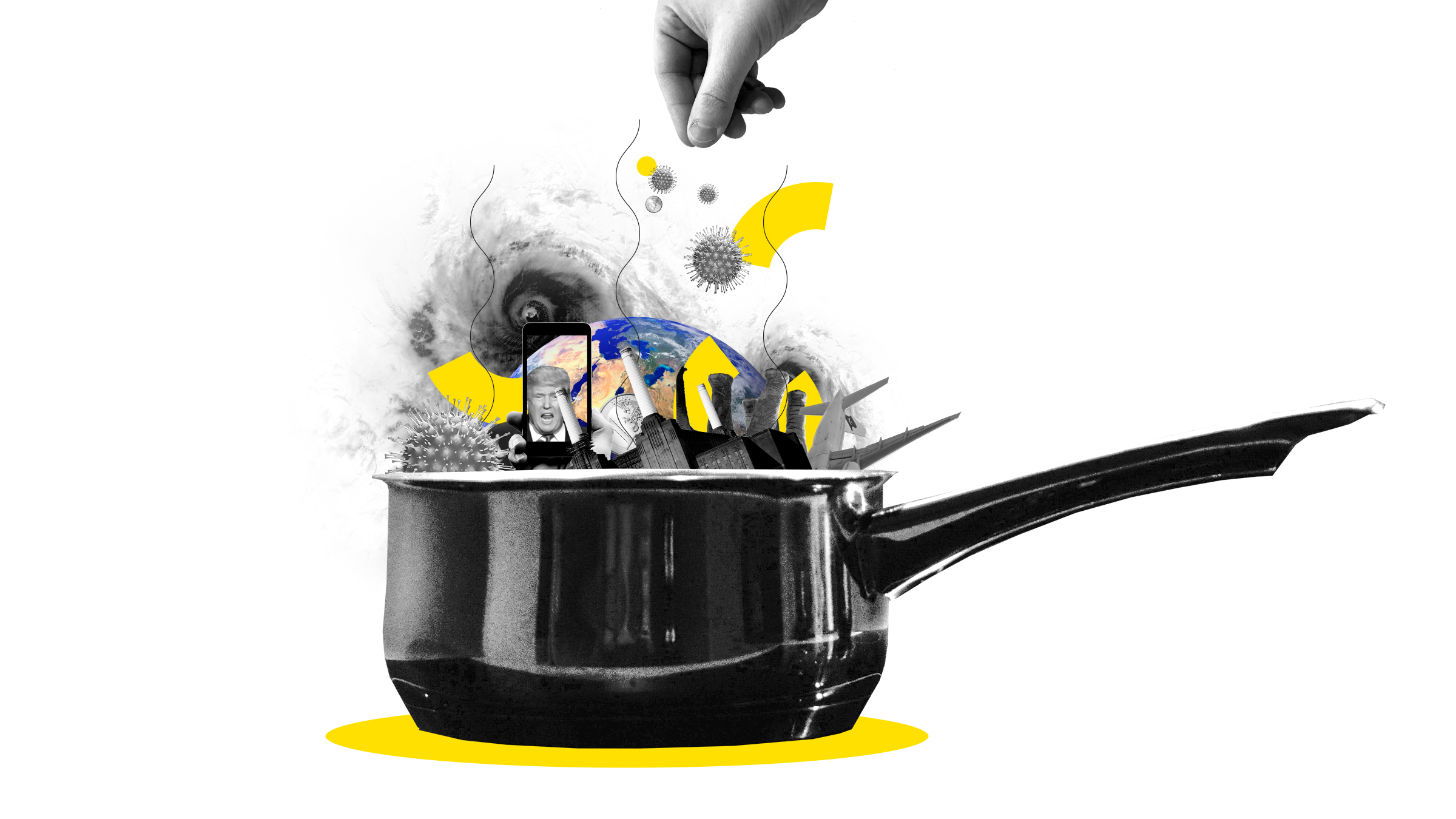



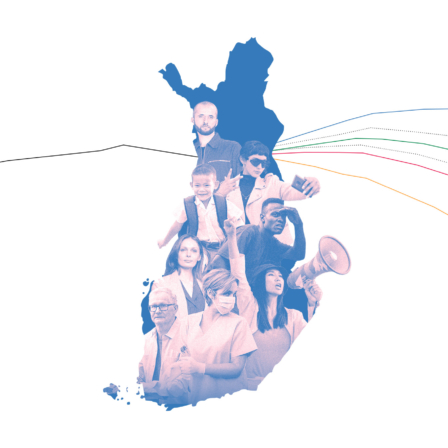
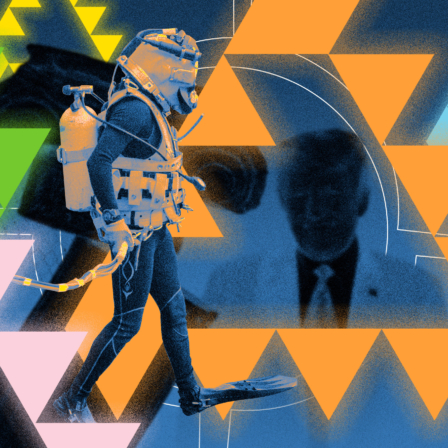
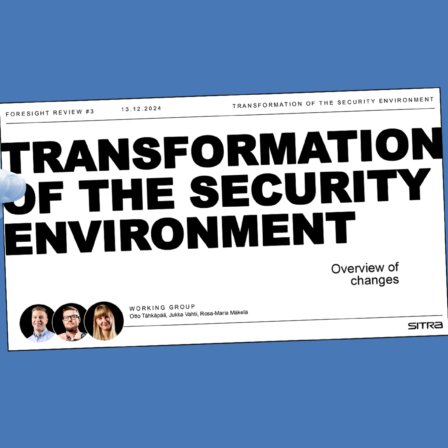
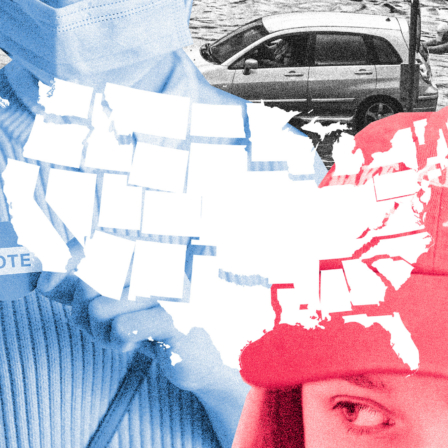


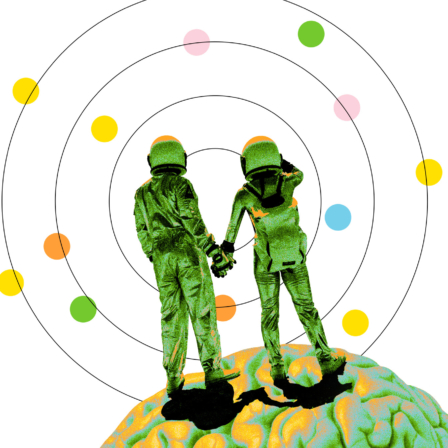




Recommended
Have some more.